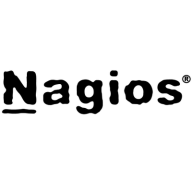

Nagios Core and Azure Bastion are both valuable tools in IT operations, where Nagios Core excels in monitoring capabilities and Azure Bastion leads in secure remote access. While pricing and support are in Nagios Core's favor, Azure Bastion's robust security features give it an edge for those prioritizing cloud security.
Features: Nagios Core provides comprehensive monitoring capabilities, allowing precise tracking of network performance and offering extensive customization options for various components. It includes flexible alerting options and a user-friendly interface for efficient operations. Azure Bastion offers secure RDP and SSH access without exposing critical resources to the public internet, seamless integration with the Azure portal, and automated scaling to support varying loads. It emphasizes security and ease of management within Azure environments.
Room for Improvement: Nagios Core can be complex for new users, lacks native cloud integration, and would benefit from more modern UI enhancements. Azure Bastion's limitations include higher costs, dependency on Azure services, and potentially complex configurations for advanced scenarios. Each product could enhance user guides to address common setup issues and streamline specific functionalities.
Ease of Deployment and Customer Service: Nagios Core demands manual setup, which can be challenging without technical expertise, though it benefits from an active open-source community for support. Azure Bastion offers a straightforward deployment directly through the Azure portal, with robust support from Microsoft, making it more accessible for users already embedded in the Azure environment.
Pricing and ROI: Nagios Core, as an open-source solution, imposes minimal initial costs, appealing to budget-conscious organizations seeking efficient monitoring solutions. Azure Bastion requires a more significant financial outlay due to its enhanced security features, yet offers strong ROI through robust protection and operational efficiencies. Businesses leveraging Azure may find the cost justified by the security benefits and seamless integration it provides.
We have noticed savings of approximately twenty percent by using Azure Bastion compared to VM pricing.
Support is satisfactory but with room for improvement, primarily concerning data transfer issues.
We usually get backup within two hours.
It is designed to provide access over a private network without hitting the internet.
The solution is scalable.
Azure Bastion is stable.
I tried many other solutions at work, however, in terms of Nagios, I haven't seen any disruption or downtime.
A storage solution must be created to transfer data, and this requires additional permissions like ACL or NFS.
I would like to see integrated AI features with Azure Bastion, especially for connectivity issues.
It would be nice to have the capability to cut and paste across desktops, similar to old-fashioned Remote Desktop emulation.
Microsoft's pricing is on the higher side and could be more competitive.
The price is not necessarily cheaper, but it is acceptable.
Azure Bastion eliminates the need for a jump server by providing secure access to servers without hitting the public network.
The security is the main reason we use Azure Bastion because it is integrated with Azure Active Directory, ensuring that access is secure.
We use Azure AD integration to specify who has access and what they can do.
It has a very handy dashboard, providing live alerts and visibility for everything.
| Product | Market Share (%) |
|---|---|
| Nagios Core | 2.5% |
| Azure Bastion | 0.2% |
| Other | 97.3% |


| Company Size | Count |
|---|---|
| Small Business | 5 |
| Midsize Enterprise | 1 |
| Large Enterprise | 6 |
| Company Size | Count |
|---|---|
| Small Business | 20 |
| Midsize Enterprise | 11 |
| Large Enterprise | 22 |
Azure Bastion is a service you deploy that lets you connect to a virtual machine using your browser and the Azure portal. The Azure Bastion service is a fully platform-managed PaaS service that you provision inside your virtual network. It provides secure and seamless RDP/SSH connectivity to your virtual machines directly from the Azure portal over TLS. When you connect via Azure Bastion, your virtual machines do not need a public IP address, agent, or special client software.
This is IT infrastructure monitoring's industry-standard, open-source core. Free without professional support services.
We monitor all Network Monitoring Software reviews to prevent fraudulent reviews and keep review quality high. We do not post reviews by company employees or direct competitors. We validate each review for authenticity via cross-reference with LinkedIn, and personal follow-up with the reviewer when necessary.